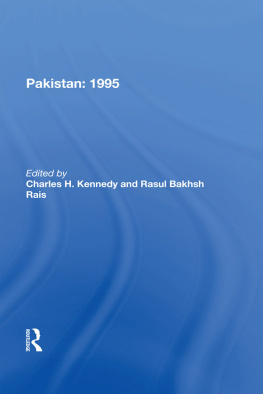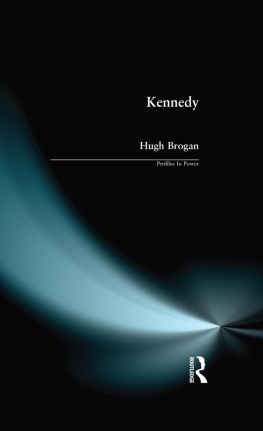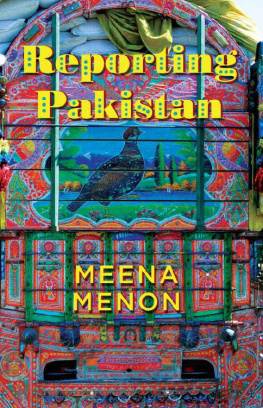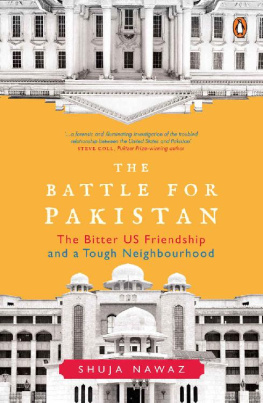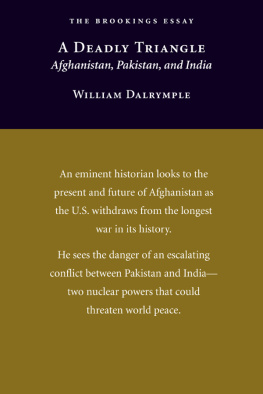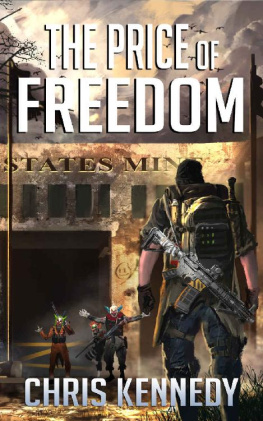Pakistan: 1992
Published in cooperation with the American Institute of Pakistan Studies
First published 1993 by Westview Press
Published 2019 by Routledge
52 Vanderbilt Avenue, New York, NY 10017
2 Park Square, Milton Park, Abingdon, Oxon OX14 4RN
Routledge is an imprint of the Taylor & Francis Group, an informa business
Copyright 1993 Taylor & Franci
All rights reserved. No part of this book may be reprinted or reproduced or utilised in any form or by any electronic, mechanical, or other means, now known or hereafter invented, including photocopying and recording, or in any information storage or retrieval system, without permission in writing from the publishers.
Notice:
Product or corporate names may be trademarks or registered trademarks, and are used only for identification and explanation without intent to infringe.
Library of Congress ISSN: 1061-6101
ISBN 13: 978-0-367-28212-7 (hbk)
Contents
Lawrence Ziring
William L. Richter
Shahid Javed Burki
Charles H. Kennedy
Afak Haydar
Anne T. Sweetser
Marvin G. Weinbaum
Robert G. Wirsing
Ata Khan
Pakistan: 1992 is the inaugural volume of a prospective series of biennial assessments of contemporary events and issues in Pakistan affairs. In general, the series will cover issues relevant to Pakistans domestic politics, foreign policy, and economy. This volume contains special chapters on the 1990 elections, Islamization, health policy, Afghanistan, and Kashmir. Each of the contributors to this volume is a specialist on Pakistan, and each has had recent research experience in the state relevant to their respective contributions. Pakistan: 1992 is published in affiliation with the American Institute of Pakistan Studies, a non-profit, non-partisan educational organization in its nineteenth year of operation, which is dedicated to encouraging and supporting research on issues relevant to Pakistan and the promotion of scholarly exchange between the United States and Pakistan.
I wish to express deep appreciation to all of the authors of Pakistan: 1992 for their hard work under rigorous deadlines. Special thanks is also owed to those scholars who agreed to serve as discussants at the 1992 Annual Convention of the Association for Asian Studies in March, where earlier versions of the chapters included in this volume were presented. Those scholars were: Rafiq Afzal, University of Massachusetts; Larry Goodson, Campbell University; Shafik Hashmi, Georgia Southern University; Sikandar Hayat, Embassy of Pakistan; Rasul Rais, Columbia University, and Mohammad Waseem, Columbia University. Their thoughts helped to revise and enrich the manuscript. I am also grateful to Susan McEachem and her colleagues at Westview Press who agreed to undertake this project. It should be noted that Afak Haydar, author of , was also instrumental in the preparation of the glossary.
Closer to home, financial assistance for this project was provided by the Research and Publication Fund of the Graduate School and by the Archie Fund for Faculty Excellence, both of Wake Forest University. Elide Vargas of the WFU Department of Politics proved helpful throughout, as always. Ata Khan, administrative assistant of the American Institute of Pakistan Studies, was indispensable during every phase of the project. Finally, very special thanks is owed to Patricia Poe, who, with the help of Guilford Publishing Company and Lisa Merschel, coaxed the manuscript into its final form.
Charles H. Kennedy
American Institute of Pakistan Studies
Wake Forest University

. Source: Ashok K. Dutt and M. Margaret Geib, Atlas of South Asia (Boulder: Westview Press, 1987).

. Source: Shahid Javed Burki, Pakistan: The Continuing Search for Nationhood (Boulder: Westview Press, 1991).
1
Dilemma and Challenge in Nawaz Sharifs Pakistan
Lawrence Ziring
The year 1991 was transitional for the world, and no less so for Pakistan. In many respects it was a defining year for Pakistani political system and for the central government led by Nawaz Sharif. Never before did international events have a deeper impact on the domestic scene, and by the same token, never before was the countrys foreign policy so clearly an extension of its national condition. The time had passed when internal and external matters could be compartmentalized. The intertwining of the one with the other gave new emphasis to holistic doctrine, and indeed Pakistan was called upon to reexamine its basic ethos and to determine the course it would pursue in light of the cataclysmic changes generated by the collapse and disintegration of its giant neighbor, the Soviet Union.
The task of leading the nation during this uncertain period fell upon two personalities, one with his roots in the emergence of the Muslim state, the other, a man half his age, more conditioned by the urban growth and entrepreneurial development of the third world nation.
The relationship between President Ghulam Ishaq Khan and Prime Minister Nawaz Sharif offered more synergism than that between the president and Nawaz Sharifs predecessor, Benazir Bhutto. Whereas division, rivalry, and conflict framed the relationship between Benazir and Ghulam Ishaq, there was relative compatibility in the way in which Ghulam Ishaq interacted with Nawaz Sharif. Such sharp contrast was also discerned in the character of the support that Benazir and Nawaz Sharif received in buttressing their administrations. Benazir led a curious coalition, the most striking feature of which was her inability to carry the Punjab or to find a place within her government for the forces led by Nawaz Sharif. She failed to sustain a coalition with the Karachi-based MQM (Muhajir Qaumi Mahaz), and her tactics prevented alliance with frontier leaders in Balochistan and the NWFP (Northwest Frontier Province). Nawaz Sharif, on the other hand, proved more adept at forming coalitions. As the dominant political figure in the Punjab, he was successful in bringing the Sindhi Muhajir organization into the fold, while heretofore rival provincial and ideological camps joined with him in the creation of a harmony of interests not experienced since the earliest years of the countrys independence. And, although Benazir assumed the role of leader of the political opposition, many of her former PPP (Pakistan Peoples Party) stalwarts opted for a place within the ruling IJI (Islamic Democratic Alliance).
The Intertwining of Domestic and Foreign Policy
But as much as domestic developments caused Pakistanis to reassess their political performance, it was the world beyond Pakistan that provoked the nation to respond to combinations of challenges that demanded reappraisals of its status and role in a rapidly changing global environment. The year began with an American-led international force, of which Pakistan was a token member, assaulting Iraq. The success of Operation Desert Storm forced Baghdad to retreat from Kuwait, which it had invaded, occupied, and annexed only months before. The Pakistani troops that were despatched to Saudi Arabia, however, were stationed distant from the war zone, and their services were neither contemplated nor used by the alliance that planned and prosecuted the action. Moreover, although volunteering forces for the international coalition, Islamabad itself officially proclaimed that they only were to be used to protect the most sacred of the Islamic holy places in Saudi Arabia.




